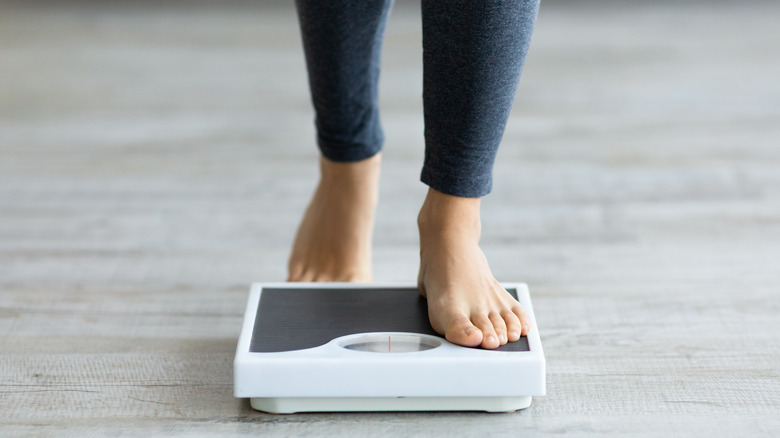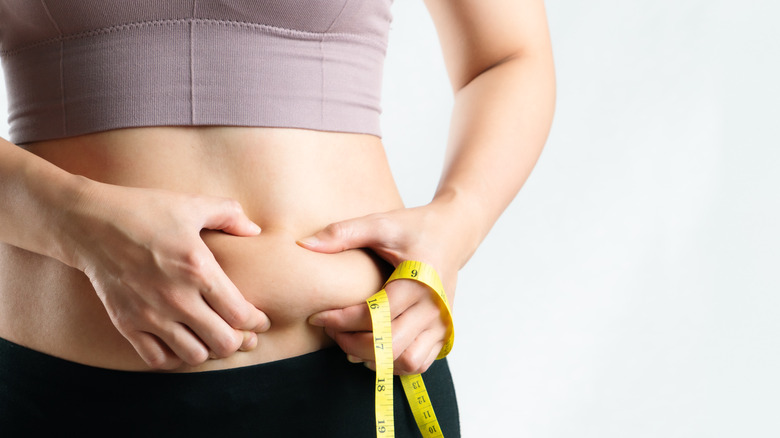Period Weight Gain Is Normal. Here's Why
When you have your period, your body is going through a lot. Your hormone levels are all out of whack, making you feel tired, moody, and bloated. But the symptoms of your period don't stop once your flow starts. The National Institutes of Health cite everything from cramping and sore breasts to headaches, fatigue, and food cravings as entirely normal symptoms that many people have throughout the duration of their period.
But even if these symptoms are considered normal, they can still be a huge nuisance. One such symptom is weight gain. Most of us are aware that bloating comes with menstruating, but what happens if you notice yourself gaining actual weight during your period? You may be wondering if it actually is normal.
The good news: It is. But there's more to know about period weight gain.
What to know about period weight gain
If you're on your period or know it's about to come, you may notice your weight start to creep up. Whether you step on a scale or can just tell by the way your pants fit, you may be not only frustrated but concerned that you keep gaining weight while menstruating. According to Healthline, there is nothing to be concerned about as long as your weight gain doesn't exceed five pounds.
There are many different reasons you may be gaining weight during your period. The biggest is often linked to water retention, which happens when progesterone levels increase during menstruation, per Medical News Today. This is why you get bloated on your period. It causes your face, arms, stomach, and legs to feel swollen or larger. Luckily, that swelling will subside after your period ends.
Other reasons you may gain weight during your period are overeating caused by cravings, stomach issues like constipation, or skipping workouts because of cramps or that overall yucky feeling.
If you do notice weight gain each month, there are things you can do to help combat it.
How to avoid period weight gain
Although weight gain during your period is completely normal, and a few extra pounds each month is likely only noticeable to you, it can still be something you want to change. The American College of Obstetricians and Gynecologists recommends changing up your diet around the time you menstruate by upping your intake of complex carbs, reducing salt and sugar, taking it easy on caffeine and alcohol, and eating more calcium. Smaller meals will also help regulate your blood sugar, which can slow symptoms of your period, including weight gain.
Healthline also recommends filling up that Stanley cup one extra time because drinking more water can reduce bloating and swelling. Magnesium supplements can also help as the mineral is known to combat sugar cravings and water retention — two major factors of period weight gain. Continuing with your normal daily exercise, even if that simply means a long walk, will also help.
If you find your weight gain is hindering your daily life or exceeds five pounds, talk to your doctor to learn more about what you can do to help.


